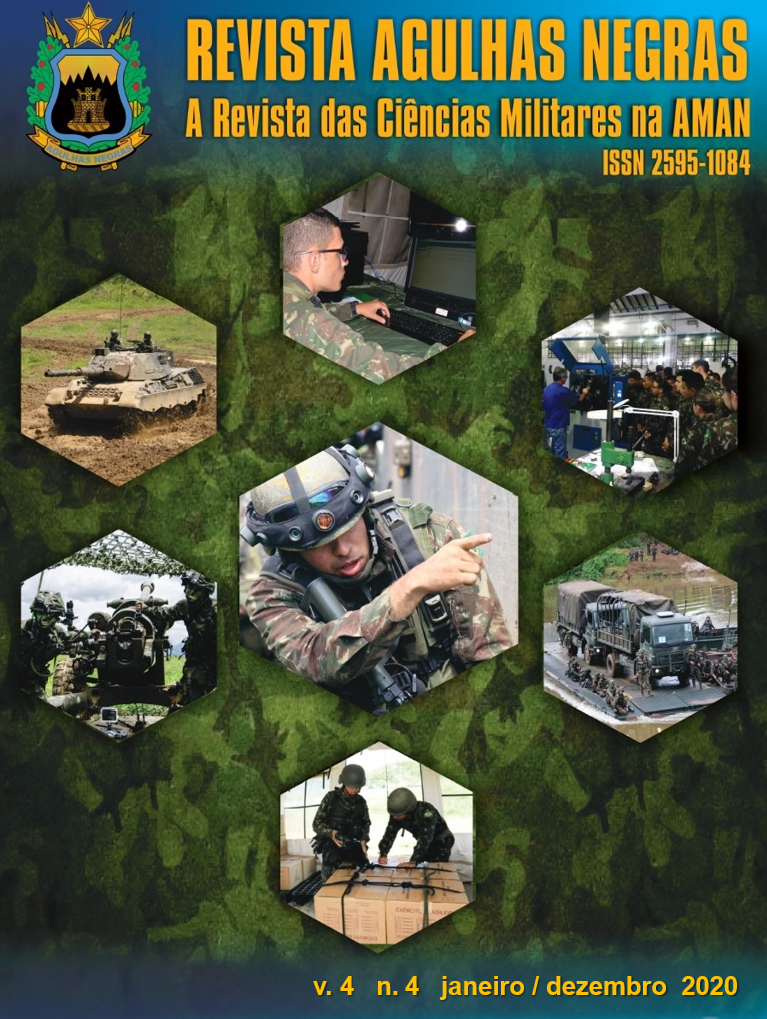A PSICOLOGIA DAS MASSAS NA ALEMANHA APÓS A PRIMEIRA GUERRA MUNDIAL
UMA BREVE ANÁLISE A PARTIR DA PSICOLOGIA COMPLEXA
Abstract
The crisis scenario experienced by some countries in Europe after World War I was responsible
for the rise of ideologies such as Nazism, fascism, among others. In common, these ideologies
influenced individuals to behave according to their beliefs, forming a fanatical mass, which
culminated in the outbreak of World War II and several human rights violations. From the analysis
of these historical facts, and considering the importance of understanding the changes in attitude
that occur in individuals when inserted in certain social situations of crisis, this study was
elaborated with the objective of understanding the phenomena that occurred in German society
that provoked the Second World War and the various violations of human rights perpetrated by a
portion of the German people; identify expressions of collective possession in the German
population in the above-mentioned period; and identify mass manipulation techniques. To
elucidate this question, we studied works by Le Bon and Jung that, within psychology, address
the theme of mass psychology and its influence on societies, and sought to illustrate this
phenomenon with bibliographic and documentary research on German society involving the
period from the end of World War I until the end of World War I (1918-1945) There have been
many examples of "manipulation techniques" of the masses that made it possible to have the
occurrence of war and the above-mentioned violations. In contemporary times, mainly due to the
scope of information disseminated in cyberspace, this possibility of manipulation of the masses
persists, even more so that the dissemination of ideas and ideologies, often harmful to society, is
greatly facilitated by new communication technologies.
Downloads
References
EGGCF, 1999.
BARBOSA, C. A função da propaganda antissemita no periódico alemão Der Stürmer.
Revista Boletim Historiar, Sergipe, n. 18, jan./mar. 2017, p. 89-97, Disponível em:
ELIAS, Norbert. Os alemães: a luta pelo poder e a evolução do habitus nos séculos
XIX e XX. 3.ed. Rio de Janeiro: Jorge Zahar, 1997.
JACOBI, J. A psicologia de CG Jung: uma introdução às obras completas. Editora
Vozes Limitada, 2013.
JUNG, C. Civilização em Transição. 4 ed. Petrópolis: Vozes, 2011.
______. Presente e Futuro. 8. ed. Petrópolis: Vozes, 2013.
HOUAIS, A. VILLAR, M. Dicionário Houaiss da língua portuguesa. 1. ed. Rio de
Janeiro: Objetiva, 2009.
HITLER, A. Minha Luta. São Paulo: Centauro, 2001.
LAKATOS, E. M.; MARCONI, M. de A. Fundamentos de metodologia científica. 6. ed.
5. reimp. São Paulo: Atlas, 2007.
LE BON, G. Psicologia das multidões. São Paulo: Martins Fontes, 2013. (Original
publicado em 1895).
MINAYO, M. C. S. (org.). Pesquisa Social. Teoria, método e criatividade. 18 ed.
Petrópolis: Vozes, 2001.
MOTA, E. As Operações Psicológicas no desenvolvimento de uma mentalidade de
Defesa. Rio de Janeiro: Escola Superior de Guerra, 2013. 55 f. Monografia
(Especialização em Altos Estudos de Política e Estratégia).
PENNA, E. Epistemologia e método na obra de C. G. Jung. São Paulo: EDUC:
FAPESP, 2013.
SHAMDASANI, S. Jung e a Construção da Psicologia Moderna: um sonho de
ciência. 1. ed. Aparecida, SP: Ideia&Letras, 2011









